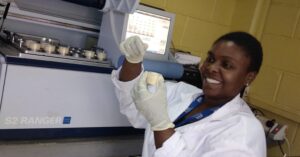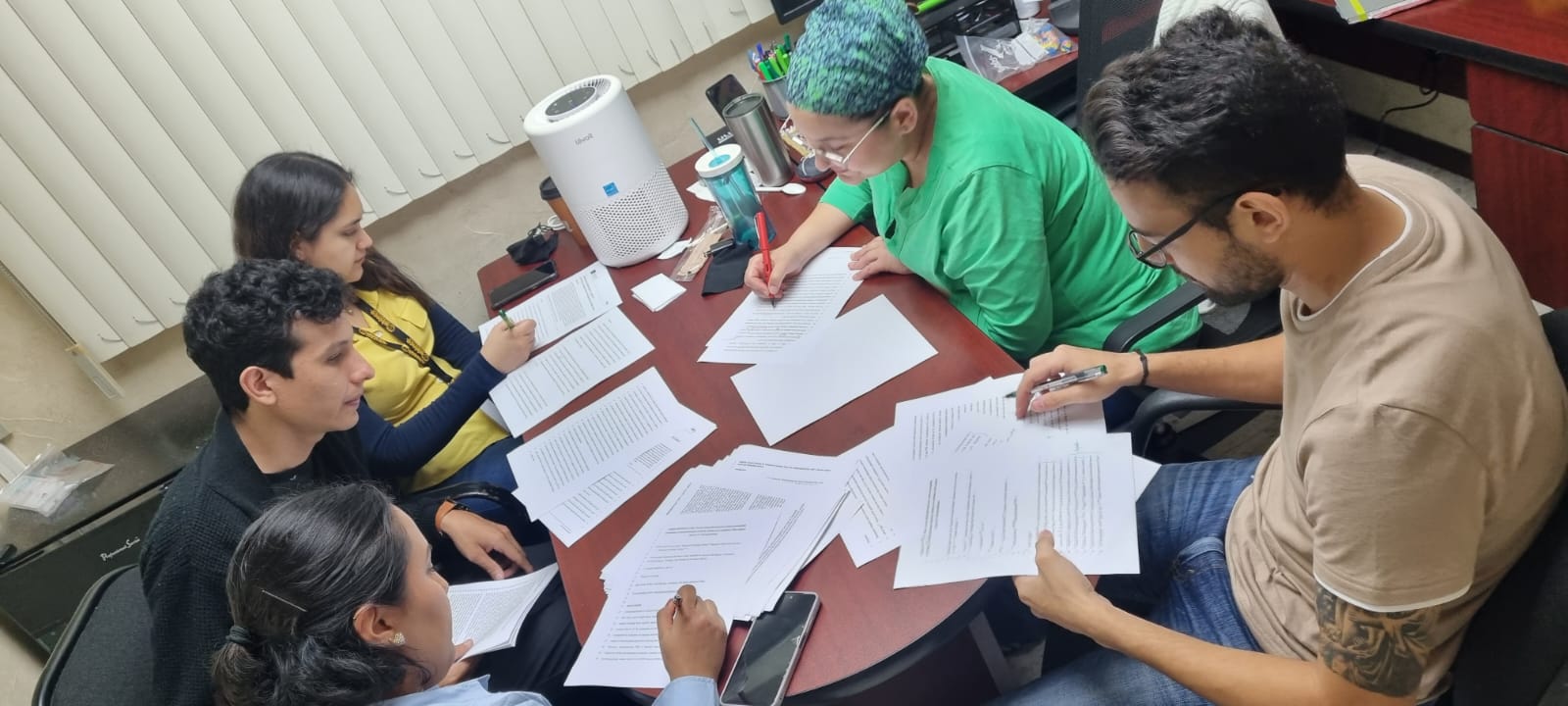
The impact of mentorship and how flexibility is key: Alejandra’s experiences as a woman researcher from Mexico
Welcome to our final interview of this mini-blog series, celebrating and reflecting on the International Day of Women and Girls in Science. INASP Programme Assistant Maisie Northing and AuthorAID Community Administrator Aastha Subedi have spoken with several AuthorAID stewards, asking them about their career journey as a woman, their opinions and thoughts on ways more equitable opportunities for women and girls could be achieved, and what advice they would give their younger selves and young researchers.
Our last interview this week is with Alejandra Arreola. We hope you have enjoyed reading our mini-series across the week to celebrate the International Day of Women and Girls in Science. Keep an eye on our social media for a look at other excellent quotes we received in the short survey sent to the AuthorAID community, on what they currently do, and what they think should happen, to support women and girls in science. See our first blog for some selected quotes and discussion.
Alejandra is a biologist with a master’s degree in Science and Technology Journalism from Texas A&M University. She works at the Universidad Autónoma de Nuevo León, in Monterrey, Mexico, where she teaches science writing to both graduate and undergraduate students. Alejandra is an AuthorAID steward and INASP associate.
What has been the most exciting part of your work in the past year?
I teach science writing and science communication at the College of Biological Sciences at the Universidad Autónoma de Nuevo León, in Monterrey, Mexico. I really, really enjoy teaching. I have had to design my syllabi for my all my graduate and undergraduate courses, and that was fun! A couple of summers ago, I was talking to my mentor and graduate advisor, Dr Barbara Gastel, as I had been assigned with new courses and I wasn’t exactly sure what to do with them. She was very positive and encouraged me, and when I showed her the syllabus I designed for the academic writing courses, she said ‘what a great syllabus’. That was a gold star for me, that felt really great. I have been trying to give my students the tools to navigate the publishing system, because knowing how to work the system is key to their success. Of course, I have learned a lot from AuthorAID; it has given me great tools. INASP’s knowledge of the academic publishing system has been incredibly helpful, and Andy Nobes in particular has been super helpful. I’ve been able to share that knowledge with my students and give them the tools to navigate a publishing system that is changing constantly. In my syllabus I have a three-week block where we discuss publishing ethics, which is a topic I love. My students learn about different types of research misconducts, ethics, and open access policies. In every class I hear something like ‘Oh wow, I didn’t know that!’; that’s my job. So yes, getting that gold star from Dr Gastel, her saying this was a good syllabus really filled me with joy. This course has now become my signature course on academic writing! I love it and it is so much fun to teach.
If you had, or have, a mentor, how did their mentorship impact you?
First of all, I have always had great women mentors in my family, who have achieved top positions in their field. One of my aunts was a scientist, and a great cook, and I know she faced many challenges. Other aunts became principals in the schools they taught in, and one of them worked in the State Ministry of Education. My mum was the first woman Dean of a college of medicine in the state, and probably one of the first in Mexico. She is the leading authority in the evaluation of medical education in the country. One of my mentors is my undergraduate advisor, Dr Diana Reséndez, who is a brilliant scientist and geneticist, and a
great person as well. I really enjoy working with her, and she is my boss now as well. She is strict and a great mentor; she will lecture you, but she will also defend you. My final project with her was on cervical cancer, and we won the best undergraduate thesis prize in the university. Her students are always winning prizes. She recently won two research awards with her doctoral students, who also I had taught my course to. Another mentor I have is Dr Gastel. When I was doing my master’s, I was a student of hers. She has also been involved with AuthorAID for a long time, and she got me involved in AuthorAID, which I am super happy about. AuthorAID has been a very important part of my life and career. As I’ve said, I’ve gained a lot of knowledge and resources from being involved with AuthorAID. Dr Gastel is a great professor; she is very knowledgeable, genuinely kind, and also strict. By strict, I mean that they won’t sugar-coat it when you make a mistake, but a good mentor should turn your mistakes into learning opportunities. You learn to mentor from your mentors – if you have great mentors, you are going to be a good mentor by emulating them. Dr Gastel really cares about her students and has always been available if I have a question. All my mentors have been, and are, amazing people; really knowledgeable, caring, ready to defend you, but also educate you when they need to. You do need to hear certain things, even if you’ve graduated.
If you could do one thing to change the research landscape for women and girls, what would it be?
More flexibility from our institutions and true fairness in recognition. I think those are key. Everybody needs flexibility for their work-life balance, but women, because of the gender roles that exist, have care duties. We know that regardless of any well-wishing, women are the ones who do the bulk of childcare, the bulk of elderly care. If we are expected to also excel at our jobs, then we need flexibility and fairness in recognition. Of course, fair pay too.
What would you like to see in your own country’s context to pave the way for girls to succeed in research?
Fixing the ‘leaky pipeline’. We do a lot of work trying to bring women in – and I’m sure this happens everywhere – but I see that universities actively work towards bringing women into the sciences, but then if you are going to offer women very low pay, very little flexibility and time off, then women are going to leave the institution. There are few women in positions of power at universities, and there are few women in positions of power in university unions, although that is changing. So, that doesn’t help. The leaky pipeline is something that happens everywhere, but the conditions should be made right for women and everybody to thrive. If it’s good for women, then it’s good for everyone else.
Could you share one piece of advice or a recommendation you would offer to your younger self or young female scholars?
Stay flexible as much as you can. When I started my studies, I wanted to work with sharks. I studied biology because I love sharks. One professor, male by the way, disabused me of that idea. He essentially said, ‘you’re never going to work with sharks, its very hard for women to do that’. Then I wanted to work on something else. I was very curious about everything and would switch my interests. I ended up working with developmental biology. If things had happened in a certain way, I would have continued working with developmental biology. But, several things happened, which led to me science writing. This, and science communication, were a perfect fit for me. I have been working on that since high school, although not consciously. I worked at a museum when I was in high school, through my college years, and then as a volunteer. I love museums! By staying flexible and open you can, and should, learn as much as you can, because you never know what is going to be the next big thing. The idea of being laser focused on becoming whatever, I don’t agree with that.
Thank you to Alejandra Arreola for her time and willingness to share her experiences and thoughts with us. We are grateful to her, Phan Anh Thu and Nafisa M K Elehamer for participating in this mini-blog series. Please do check out our initial blog post, and the recent Tea Time with AuthorAID recording, hosted by Zainab Yunusa-Kaltungo, to celebrate the International Day of Women and Girls in Science.

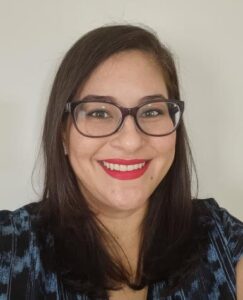
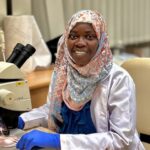 Previous Post
Previous Post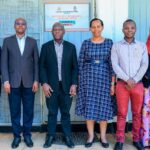 Next Post
Next Post


